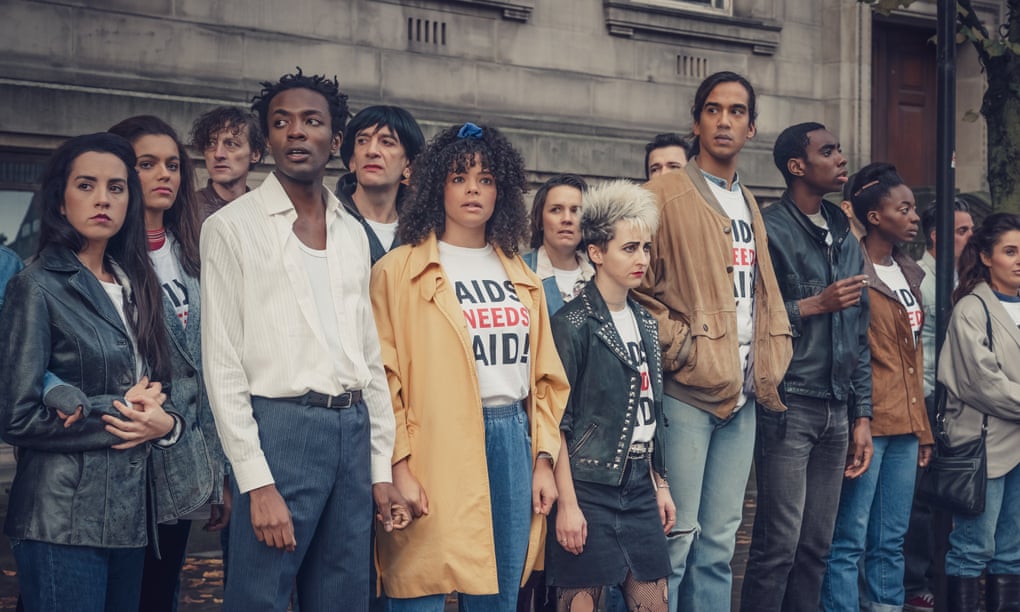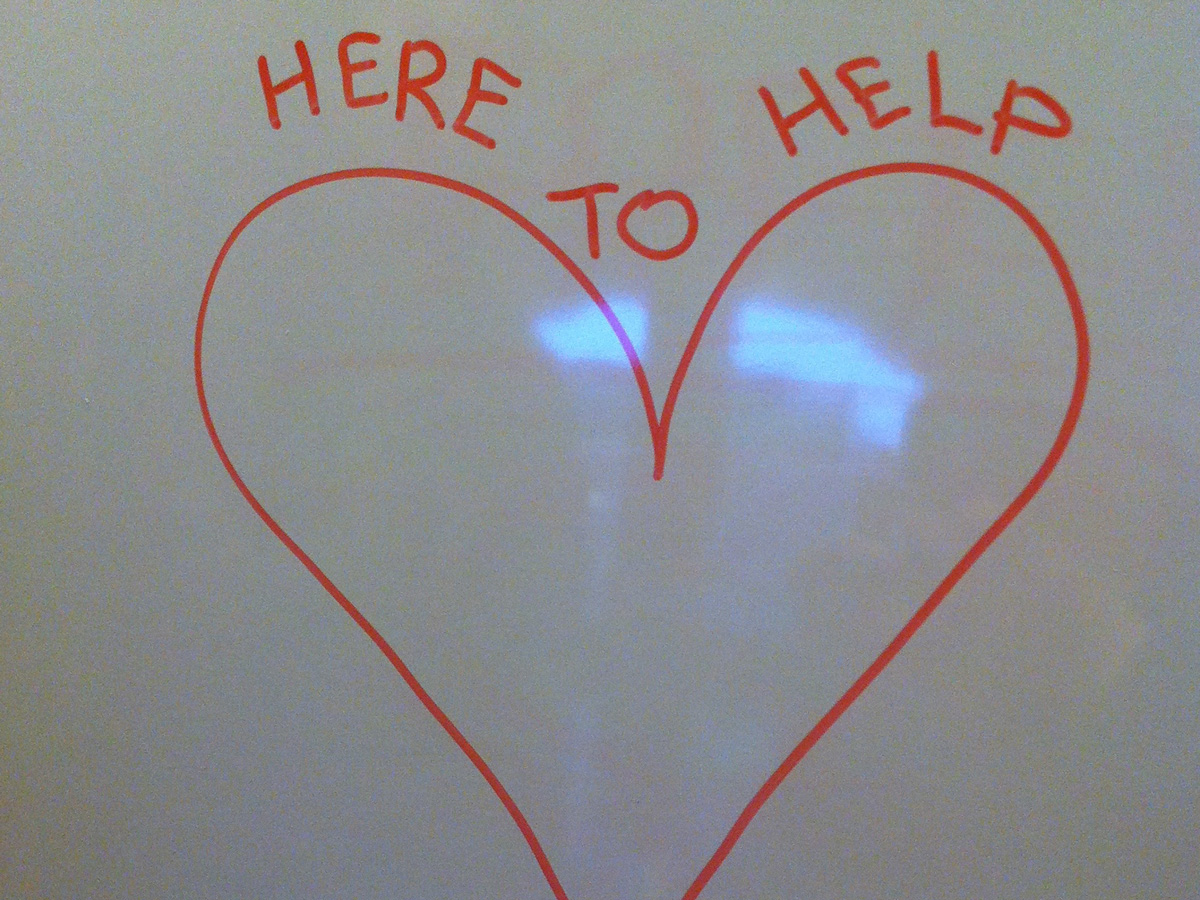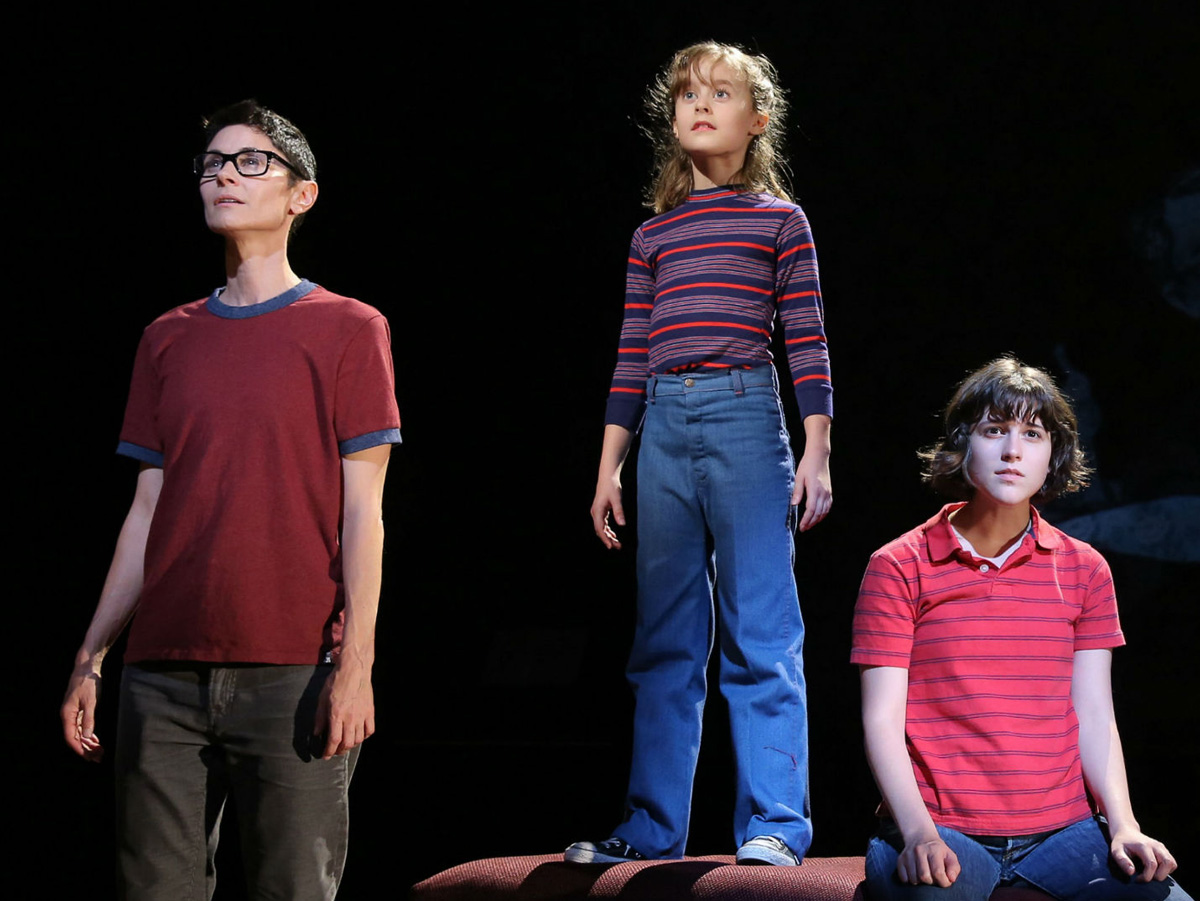It’s a Sin – that we’re so uneducated about AIDS

Maisie was heartbroken by the Channel 4 series – but also left asking why she didn’t know more
*Spoiler alert: your favourite character probably dies – so don’t read on until you’ve watched it!*
If the relentless advertising, lockdown boredom and general lack of LGBTQ+ telly options drove you straight into binge-watching Channel 4’s new miniseries It’s A Sin recently, then, like me, you’re probably still recovering. This devastating, funny and beautifully written 2021 miniseries follows a group of young LGBTQ+ people discovering themselves in 1980s London during the AIDS crisis. It poignantly highlights the history of the AIDS epidemic which was, thanks to Thatcher, silenced until only recently. With every scene of It’s A Sin I was confronted by just how much I did not know. I was shocked by how something so life-changing and huge was almost completely missing from my sexual health knowledge.
So, as I sat there with tears still streaming down my face, I asked myself how such a huge part of history had passed me by, and I felt a responsibility to learn. I wasn’t alone.
So, as I sat there with tears still streaming down my face, I asked myself how such a huge part of history had passed me by, and I felt a responsibility to learn. I wasn’t alone. In the wake of the series’ premiere, a surge of awareness is growing, largely thanks to the cast who have discussed their own experiences with HIV. Nathaniel J Hall, who features as Richie’s love interest, recently opened up about his own HIV positive status. In Gemma Peplow’s article for Sky News he admits how he turned down the first test he was offered due to ‘denial there because of the fear.’ His on-screen love interest, played by Olly Alexander, has also been raising awareness during National HIV Testing Awareness Week.
But why is our education around AIDS so lacking? I was taught about the Battle of Hastings and various Tudor kings and queens, but never about Britain’s own sexual health epidemic. It is estimated that globally almost half of all HIV-infected people are between 15 and 24 , and yet it doesn’t even come under the basic STD talk in what little sex education UK schools do provide.
The shame stigma that we still feel today mirrored in our education system is echoed in the show’s main character, Richie. After Richie’s first serious love interest infects him, he disappears from his life and spends his days self-medicating. He avoids getting his test results, and continues his life undiagnosed for many years. It was the fear of the stigma that drove Richie, with no other real options to this point. His mortgage and dream career all depended on his appearance to the world, as a straight man.
If like me you went into It’s A Sin completely ignorant, then the eye-opening and heart-breaking show is doing more for our education than our government and school systems ever did.
These feelings of denial and guilt are echoed through the show. This is only worsened as we watch Section 28 come into effect. Brought by in Margaret Thatcher in 1988, it banned the promotion of homosexuality within schools and local authorities. This meant that schools couldn’t teach safe same sex education during the height of the crisis. Ash, working as a school teaching assistant, is forced to remove any literature from his school that may promote ‘the homosexual lifestyle.’ Before watching I had heard of Section 28, but even then, I didn’t know the damage it had caused, the elevated homophobia it created, or how it robbed young gay men of any education to protect themselves from HIV. The show highlights how Thatcher’s 1988 Government failed them and brought with it a deeply ingrained taboo around sexuality that we are only just beginning to shed.
If like me you went into It’s A Sin completely ignorant, then the eye-opening and heart-breaking show is doing more for our education than our government and school systems ever did. The show represents a range of LGBTQ+ characters and does well to balance stereotypes and reality. It doesn’t shy away from the stereotype of ‘camp’ and promiscuity, but portrays it through a realistic lens and balances it out with groundings of their real life and who they actually are, rather than coasting on out-of-date stereotypes. The show is conscious in representing how AIDS could be caught by anyone, including the less promiscuous characters.

PSST- this is your second warning. If somehow, you’ve peeled yourself from the sofa before consuming the entire series, I applaud you on your self-control. I however, binged the entire show in one evening so from here on out, there will be major spoilers. So, if you want to enjoy the show spoiler-free, quick! Now is your last chance to click away.
During the show we never see Colin explore his sexuality or hook up with anyone, so when Colin has a seizure at work during one of the episodes, I lavished in ignorance.
Ok if you’re still here, you know Colin’s fate. The Welsh, wholesome and hard-working character was instantly one of my favourites. His soft tone and general shyness strayed from stereotypes, and showed how the AIDS epidemic was felt by all. During the show we never see Colin explore his sexuality or hook up with anyone, so when Colin has a seizure at work during one of the episodes, I lavished in ignorance. Despite watching a show about AIDS, I didn’t even consider that it was anything more than epilepsy or maybe at worst a tumour. I was safe in my love of Colin because of course he couldn’t have it, he didn’t sleep around, how would he catch it? As I watched through my over-worked tear ducts, I realised Colin did in fact have AIDS, that it could happen to anyone and it wasn’t a disease of the promiscuous at all. It was in fact a disease of chance. I sobbed as I watched Colin beg his mum to help him, to save him as the audience was introduced to Colin’s one partner. Colin’s depiction of AIDS was amongst one of the most upsetting – and we watched helplessly as he slowly lost control. It made me angry how unfair it was and how undeserving Colin seemed, how undeserving they all were. Sex shouldn’t be a death sentence. Thatcher sealed their fate by withholding vital sexual education and even thirty years later, the taboo remains.
As a result of Richie’s denial and shame, he carries and spreads HIV for several years before developing AIDS. We watch as he deteriorates, avoiding his parents so they don’t know. A character once praised for subverting typical gender norms through drag, acting and the safety of their ‘pink palace,’ he is reduced to the shell of a man. Richie desperately tries to hide his diagnoses and with it his homosexuality from his family.
After Colin’s death another of the main friendship group, Roscoe, talks about how his healthy state was nothing more than luck. Education, for many, came too late and was lacking and dimmed by the shameful stigma it battled. There is no one thing that defines someone with AIDS and there is no one thing good enough to honour those who died, but the show comes close. With over six and a half million viewers so far, an all-time high for Channel 4, I’m so glad that these important discussions are finally being heard.
Watch It’s a Sin here, and find out more about National HIV Testing Week here. Read NHS guidance on HIV and AIDS here, and find HIV support services here.
All images c/o Channel 4







